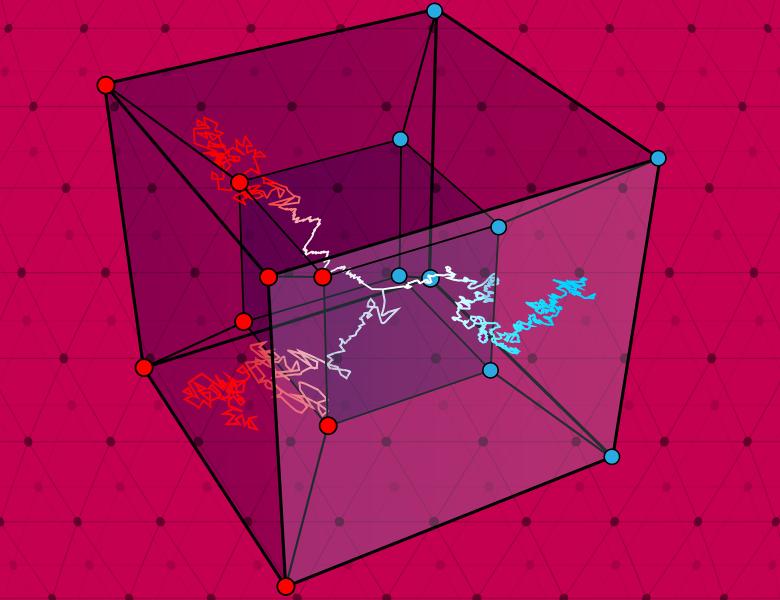
Abstract
Hypercontractivity is a property of the noise operator $T_\rho$ over certain $L^q$ spaces. For any $1 \le p < q$, a $(p,q)$-hypercontractivity inequality for an $L^q$ space asserts that any function $f$ has its norm $\| T_\rho f\|_q \le C\cdot \| f\|_p$ where $C$ can depend on the degree of the function and parameters of the space. Intuitively, hypercontractivity characterizes the extent to which the noise operator smooths functions in the space. Hypercontractivity has been shown for the Boolean hypercube, and more recently for Boolean slices, Grassmann schemes, symmetric groups, p-biased hypercubes, etc. Applications of these results include small-set expansion theorems, level-$k$ inequalities, and the KKL theorem.
In this talk we will show $(2,4)$-hypercontractivity for general $\varepsilon$-product spaces. These spaces are defined by distributions $\mu$ over a set of random variables such that in the conditional distributions obtained by restricting a few random variables, the rest of the random variables have bounded correlation. This definition generalizes many of the previous results. Furthermore, it captures previously unknown spaces such as spectral high-dimensional expanders.
This talk is based on joint work with Tom Gur and Noam Lifshitz.


